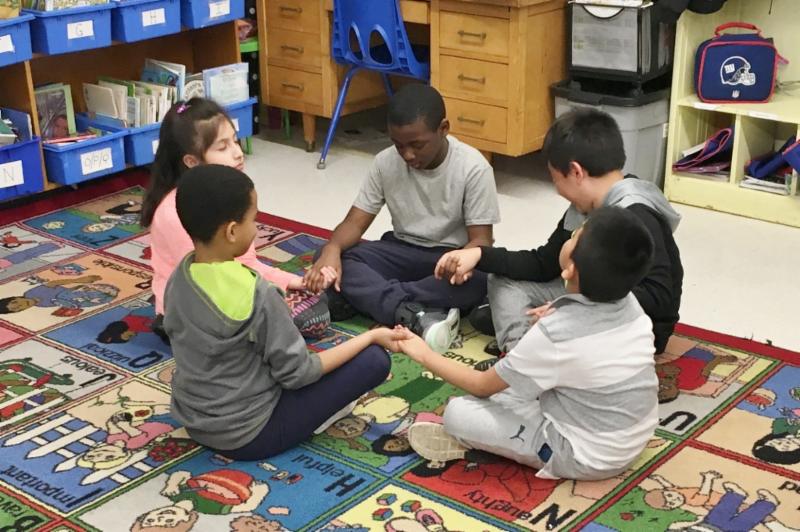Imagine Ms. Cooper’s surprise and delight when she returned to her room at East Hills at the end of lunch one day, and found several of her students sitting on the floor, eyes closed, practicing a mindfulness exercise — without any prompting from an adult.
Apparently, they’re not the only ones.
For the last year, the school district’s staff has been learning more and more about mindfulness and how we all can benefit from it.
Mindfulness is based on the idea that when life’s demands consistently outpace our ability to cope with them, it can lead to high levels of unhealthy, or toxic, stress. In students, toxic stress has been shown to impair attention, emotion and mood regulation, sleep and learning readiness.
Prolonged exposure to childhood toxic stress can have lifelong impacts on mental and physical health. Research suggests that the practice of mindfulness can improve focus, self-control, emotional resilience, and memory, among other beneficial outcomes.
In response to the increasingly high-pressure world in which we and our children find ourselves, the district decided to address the issue by introducing mindfulness training for staff.
More than 50 teachers chose to participate in a six-week online course in personal mindfulness, and all of the district’s administrators have also attended a mindfulness workshop. Many teachers went on to take a specialized course where they learned to integrate mindfulness routines into their work with students.
Teachers at the high school are participating in an interactive workshop this month, where they will also learn key components of mindfulness practices as well as the scientific research behind it.
As a result, teachers are taking the initiative to bring mindfulness into the classroom, where some students are evidently already taking the lessons to heart. The district hopes this is just the beginning of a long-term trend towards lower stress and better mental and physical health for our school community.



